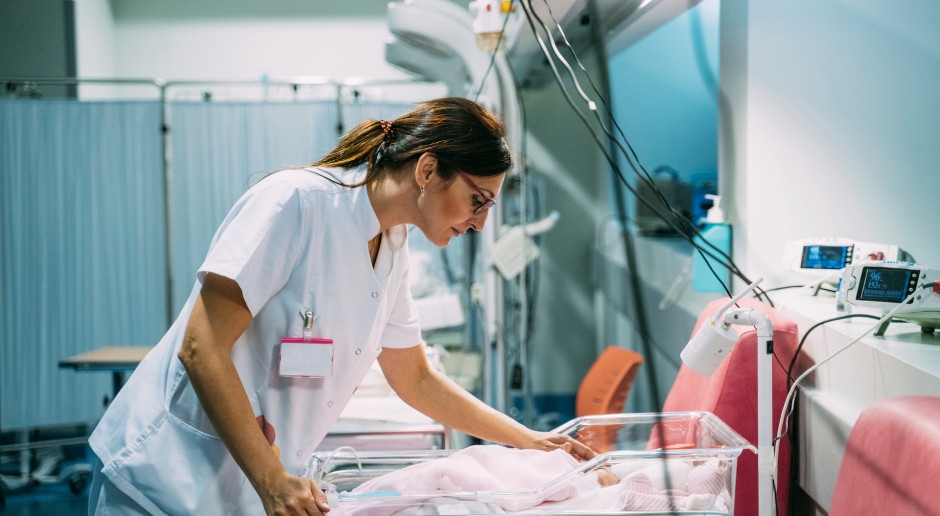Longer commutes to work may increase the risk of miscarriage, Polish study shows

Women who spend more time commuting to work have a higher risk of miscarriage than those who live close to their workplace. The length of the daily commute may be one of the modifiable environmental factors influencing pregnancy loss, emphasizes Dr. Ewa Jarosz from the University of Warsaw.
"Miscarriage, or the loss of a pregnancy before the 20th week, is the most common pregnancy complication, and known risk factors include prolonged standing, exposure to chemicals, and shift work. However, no one has yet looked at the issue of daily commuting, even though it is part of many women's routine and may involve various stresses, both physical and environmental," an expert from the Faculty of Economic Sciences at the University of Warsaw explained to PAP.
"We decided to check whether the length and regularity of commuting, which combines elements of stress, environmental exposure and fatigue, also play a role," she added.
Together with Chen Luo and Anna Matysiak, she analyzed data from the German Pairfam panel study, which includes information on working women of reproductive age. She took into account factors such as age, body mass index (BMI), work mode, and work hours, allowing her to separate the impact of commuting from other known predictors of pregnancy loss.
The researchers published the results of their work in the journal "BMC Pregnancy and Childbirth" (https://doi.org/10.1186/s12884-025-08259-8).
They found that as the participants' commute time increased, their risk of miscarriage increased. Women whose daily commute took less than 10 minutes had a significantly lower risk compared to those who spent 30 minutes or more commuting. This relationship was gradual – the longer the commute, the greater the likelihood of miscarriage.
"When we considered only women who commuted daily, this correlation became even stronger. This suggests that long-term, regular exposure to commuting-related factors, such as stress, fatigue, and air pollution, may increase the risk of miscarriage," noted Dr. Jarosz.
She added that in recent years, a great deal of evidence has accumulated showing that certain aspects of paid work are significant risk factors for miscarriage. Among the well-documented factors are shift work and the associated shifts in circadian rhythms and exposure to harmful chemicals. The results of this study suggest that long commutes to work may be just as important. According to the author, this may be due to the fact that daily travel not only increases stress, both physical and psychological, but also limits time for rest and check-ups.
- The more time a woman spends commuting, the less time she has for relaxation and prenatal care, which may also be important - noted Dr. Jarosz.
Exposure to air pollution, including traffic exhaust fumes, particularly nitrogen oxides and particulate matter, has also been proven to negatively impact pregnancy outcomes and the risk of miscarriage. These substances can affect the circulatory system and hormonal processes, which play a key role in maintaining pregnancy.
"Time spent in traffic is associated with inhaling more pollutants. If this happens daily, over a longer period of time, it can have a significant impact," the expert said.
In her opinion, the results are consistent with what many scientists have observed during the pandemic. The lockdown has shown that working from home can have a beneficial effect on fertility and pregnancy outcomes.
"During the pandemic, there was a slightly higher fertility rate, and research showed that women working from home were more likely to have children. The reasons for this situation weren't analyzed at the time, but it prompted us to look at issues related to mobility," she explained.
According to Dr. Jarosz, these conclusions have significant practical implications—they can help many women increase their chances of having a child. The length and frequency of commuting are factors that can be relatively easily modified, unlike factors such as age or body weight.
"This is something we can influence in many cases. If remote or hybrid work is possible, it's worth considering, especially for women in at-risk groups, such as older women, those with a higher BMI, or those who have had previous miscarriages," the researcher noted.
Of course, she added, working from home is not possible in every profession, but even then, with the employer's good will and based on appropriate regulations, the number of days with commuting can be limited to some extent.
"Even in professions such as hairdressing, catering, or retail, it's worth considering shortening the workweek or introducing flexible schedules for pregnant women. This could be a viable form of prevention, especially for higher-risk groups," said a specialist from the University of Warsaw.
The sharp decline in fertility in developed countries, including Poland, provides an additional context that, as Dr. Jarosz emphasized, gives this study particular importance. As more and more women decide to become mothers later in life, and the risk of miscarriage increases with the age of the parents, identifying even minor factors that can be modified becomes a crucial element of public health policy.
"We often hear that women should have more children, but at the same time, working from home is criticized in many circles. Meanwhile, our study shows that the ability to work remotely can actually support women's fertility and health," she concluded.
The authors of the study plan to continue the research in the form of a pilot clinical project, in which one group of women will be advised to limit their commuting to work, while the other will be advised to maintain their current routine. This will allow us to verify whether lifestyle modifications actually translate into a lower rate of miscarriages.
Katarzyna Czechowicz (PAP)
cap/ bar/ speak/
naukawpolsce.pl




